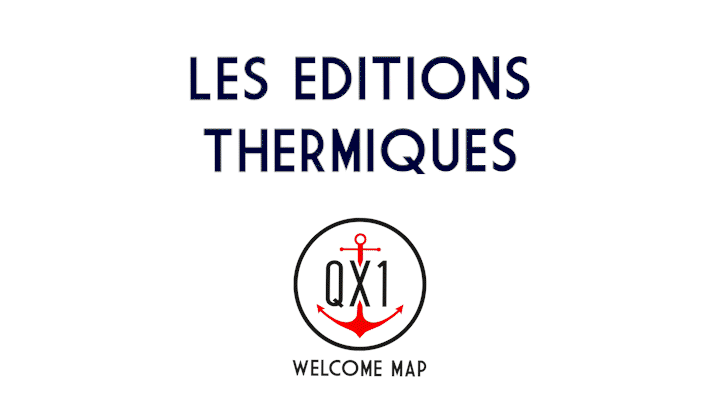Éditions Thermiques

Invoices and receipts are everywhere: in retail, logistics, library management, and point-of-sale (POS) systems, to name but a few. They are usually small, disposable pieces of paper, considered temporary in terms of material and content. Thermal printing – the technology used to produce them – has been around since the 1930s when newspapers supplied editions sent by radio waves and printed by a radio receiver.
In digital times, printed media are still traveling through space: thermal printing remains an alternative, fast, and cheap method of creating and distributing content. These days, a laptop, rolls of paper, and a barcode printer are all you need to carry out experimental projects aimed at a wide audience.
In this sense, QX1 Welcome Map ticks all the boxes. As a platform that integrates online and offline media, we close the loop by making this information available through post-digital publishing. Here’s how it works: we take content from the platform and modify it to fit onto 58mm wide thermal paper, insert QR codes to link to resources available on our site, and et voilà! Once printed, a tool that we designed and 3D printed – a hand crank folding machine – is used to create a fan fold.
QX1’s primary objective has always been to help migrants, activists, and social workers in Marseille by providing them with adequate and relevant information: that’s why we’re launching Éditions Thermiques:
- To increase the circulation of QX1-related content, particularly in non-digital spaces
- To reach even more people and expand the community of those who, with their knowledge, contribute to enriching and developing our Welcome Map
- To be inclusive, by translate our content into different languages and use OpenDyslexic
All of this is owing to a kit that contains our expertise and is Creative Commons-licensed so that other people and organizations can use it.
If you’d like to find out more or get involved, drop us a line!